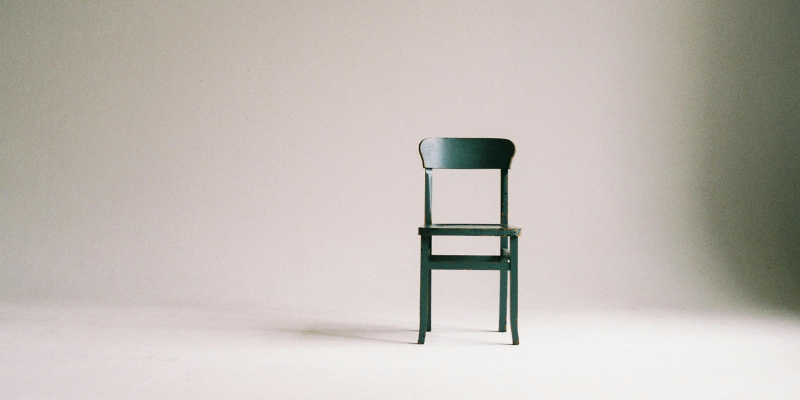Why do we sometimes get stuck in our negative thoughts?
In many ways, the condition of being human sets us up for negative thinking. Think about when you have something stuck in your teeth. A piece of kale, perhaps. Where does your tongue go? It goes directly to the problem and works to solve it. If you have bitten your lip, your tongue does the same thing—it is immediately dispatched to soothe the wounded area. What your tongue never does is hang out by your back molars, feeling how nice they are. The tongue’s default mechanism is to sweep the mouth, constantly looking for problems. If something doesn’t taste good, feel right, or is injured—the tongue goes on full alert, and works to resolve it. But when your tongue detects everything is okay, it doesn’t do a darn thing.
The Brain Is a Tool for Survival
Our brains work the same way. A brain is, first and foremost, a tool for survival. Its first job—like the tongue’s—is to protect us from what’s wrong, bad, or dangerous. The brain has evolved over centuries, developing what evolutionary scientists call a “negativity bias”: we are hardwired to move away from what can hurt us.
The brain is constantly assessing what is and isn’t a threat. If something is a danger, the brain figures out what needs to be done. If you’ve ever walked down a city street with hundreds of people around, you know what happens when one person starts yelling too loud or starts a fight with someone. You go on high alert and begin assessing the situation. Should I run away? Run toward? Stand still? Danger dominates our concentration and concern. Our brain is in search of what’s wrong, making these assessments between twenty and fifty thousand times a day.
Negative thoughts are often the essential ingredients for our success as they can motivate us to change. Isn’t that why you visited this blog article? Your negative thoughts, feelings, and experiences allowed you to believe that something might help. Your pain motivated the need for change and generated hope—instead of reminding you of your weakness, it summoned your strength. You can learn to summon this strength anytime you need it.
The Balancing Force of Positivity
Just like the tongue does more than protect us, the brain is designed to do more than worry. Survival and enjoyment both strive to keep us safe and happy. We need both: to push away from what can hurt us and be pulled toward what will help us grow. Only worry tips the scale too far in the direction of anxiety and depression. Focusing only on the pleasures of life makes us too vulnerable. We need an equalizing of our abilities and motives—emotional balance, like the ancient philosophies have told us all along.
What happens when you see something good? If you’re like me you’ll probably notice it, but you won’t pay nearly as much attention as you would if you felt threatened. Someone helping a woman carry her bags will be noticed, but the screaming man yelling at a passing bicyclist will hijack our attention.
We are programmed to notice negativity, but when we continue to focus on it, a decision is being made. What causes depression is repeatedly focusing on the negative—and then getting stuck there. It emphasizes our weaknesses and erases possibility from our future.
We are programmed to notice negativity, but when we continue to focus on it, a decision is being made.
When you are blocked from your goal and can’t find a pathway to it, the disappointment causes your body and brain to react. More often than not, our first reaction is anger—blaming others for what’s happened. Then we often blame ourselves. After this, we usually give up. Why bother?
These initial responses have very deep ties to our evolution. Like the tongue or brain, we are assessing a potential threat. Can this hurt us? Do we run away from the conflict? Attack it? Or will we assess the situation to come up with an idea about what to do? Although these moments may seem like a reflex, you are making an assessment, a decision about their potential to harm. You are making a choice about how to take action.
Hope doesn’t deny the situation—it just defines it differently.
New research shows that symptoms of depression appear to be default human reactions to bad events. This places depression in the same category as other (situational) threats where we are forced to appraise and choose a response. Just like negative events hijack our attention, causing us to appraise the threat in a situation, feeling angry, anxious, or stuck when expectations haven’t been met does the same thing. Ruminating on the negativity puts our brain in a threatening situation. The result? We give up. Why waste valuable energy on a threat we are convincing ourselves can’t be changed? If we persuade ourselves that the future can’t be influenced by our actions, the default response is depression.
Adding Hope to Evolutionary Reactions
Where is hope in this response? Hope is another resource that is present, and it can be cultivated as a strong alternative to the other three. Fight, flight, or freeze aren’t the only options. Finding hope is a fourth. Adding hope to the list offers a more accurate and complete understanding of what is possible when we are confronted with negativity or uncertainty.
Hope is what happens when another thought comes in and assesses what we can do with the situation. Is there something I can do to make a change? Hope doesn’t deny the situation—it just defines it differently. Like when you picked visited this blog. You didn’t deny your situation; you were simply searching for another way to look at it.


